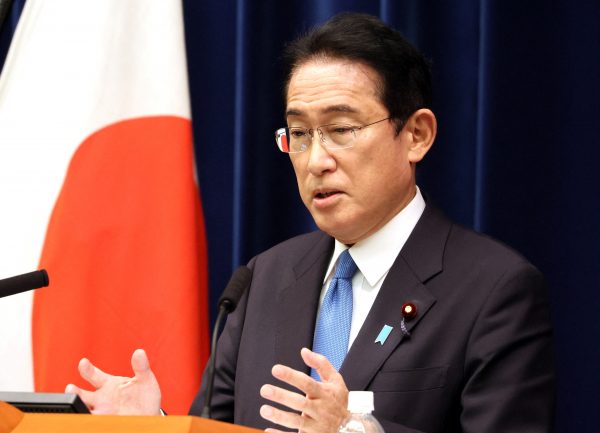Though some countries, including the United States, European Union, China and Russia, have recently organised summits with Africa, the TICAD is unique in its multilateral framework. Japan is the main organiser, but it co-hosts the conference with the United Nations Development Programme, the World Bank and the African Union Commission. the TICAD consistently aims to discuss a whole range of African development issues. While there is no doubt that Japan has utilised the TICADs to pursue its own agenda, the conferences have a strong idealistic and normative character.
The idealism contributing to African development was most obvious at the first TICAD in 1993. Around this time, Japan became the largest donor in the world, formulated its first Official Development Assistance (ODA) Charter — a commitment to supply government aid to developing countries — and was set to expand its diplomatic policy towards Africa.
At the end of the Cold War, Japan’s allies — especially the United States — urged Japan to contribute to global challenges, particularly security issues. In this context, the TICAD was conceived as an ‘intellectual conference’ at which donors would not be asked to pledge aid to projects. The TICAD aimed to address the issue of African development, without evoking images of a rich country throwing gifts to poor nations. Following international criticism of Japan’s close relationship with South Africa under apartheid in the 1980s, the country wanted to claim the high moral ground to formulate new policies as the top donor.
The supremacy of idealism and normative thinking at the early TICADs reflected the spirit of the times. From the 1990s to mid-2000s, Development Assistance Committee donors were eager to pursue normative objectives for poverty reduction. This led to global initiatives such as the Millennium Development Goals in 2000 and the Paris Declaration in 2005. Japan’s revised ODA Charter in 2003 was characterised by its normative nature as it emphasised human security.
In the 2000s, the environment surrounding the TICAD and Japan’s ODA rapidly transformed. Suffering from long-term economic stagnation, the Japanese business community heightened its pressure on the government, demanding the government offer more substantial diplomatic support. The Japanese business community held a deep sense of dissatisfaction because the suspension of the tied loan had made the ODA business unprofitable.
On the other hand, the demand to realise Japan’s ‘national interest’ through the ODA grew due to significant changes in the international environment marked by the rise of China, which drastically developed its economic relationship with Africa during the 2000s and surpassed Japan in terms of GDP in 2010.
These factors made Japanese diplomacy take a realist turn. Since TICAD 4 in 2008, business promotion has come to the forefront of the conference. The government has made major efforts to promote trade and investment by Japanese companies. The third ODA Charter (Development Cooperation Charter), revised in 2015, clearly emphasised the realisation of national interests. At TICAD 6 held in Kenya in 2016, former prime minister Shinzo Abe revealed the new Free and Open Indo-Pacific strategy, identifying China as the main target.
Though realism has appeared dominant in recent TICADs, idealism and normative aspects still remain vital. Importantly, they have been institutionalised in the conference’s multilateral settings. As a result, the TICADs have always made a wide range of commitments covering whole issues of African development. At TICAD 8, this included improving start-up assistance, a green growth initiative, quality infrastructure, contributions to the Global Fund and support for African-led efforts towards democratic principles.
Some Japanese and international scholars have criticised the TICAD over its strategic ambiguity. Despite — or because of — the extensive coverage of developmental issues, it lacks clear policy objectives. The commitments made at TICADs are always overarching and include not only Japan’s preferences, like quality infrastructure, but also issues that Japan has no comparative advantage over other donors, like support for democratic principles. Even if the TICAD has recently adopted a more realist approach, it has never been an arena where Japan aggressively pursues its priorities exclusively.
This strategic ambiguity derives partially from the multilateral nature of the TICAD. The conference is complicated and costly, but advantageous for Japan, because the multilateral setting gives legitimacy to the main organiser. Considering the various severe constraints imposed on Japan’s Africa diplomacy, it is quite valuable. In addition to the tight restrictions on military cooperation, the Japanese private sector has been reluctant to actively engage in Africa — as shown in the recent stagnation of trade and investment. In this challenging context, the TICAD’s ability to soothe African partners and produce diplomatic legitimacy make it an ingenious device for Japan.
Shinichi Takeuchi is Professor of Global Studies and Director of the Africa Studies Center, Tokyo University of Foreign Studies.

